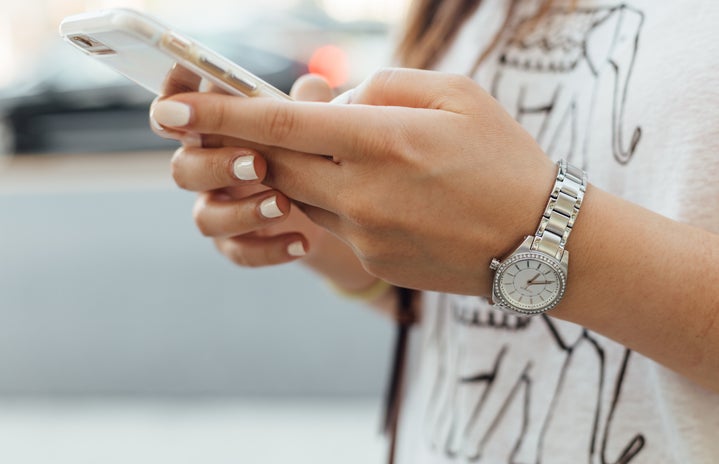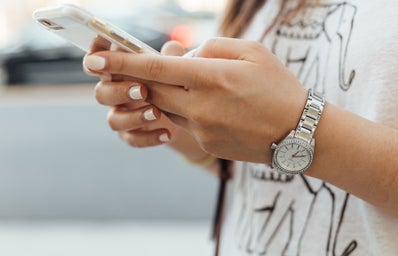Instagram. Snapchat. TikTok. Twitter. We all use at least one of these apps on a daily basis––there’s no denying that. We spend so much of our day scrolling, clicking, and liking. When you’re bored, there’s TikTok. When you can’t sleep, there’s Instagram. When you can’t focus on homework, you immediately reach for your phone and passively scroll on Instagram. We all do it, we’ve all been there. But here’s the catch––have you ever spent time wondering how much time you spend on these apps? Do you ever consider the impacts social media can have on your mental well-being? If you haven’t, here’s a time to re-think your phone habits and how it may negatively impact you without even knowing.
- Depression, Comparisons
What the majority of us don’t understand is that in order to boost self-esteem, validation, and the feeling of being liked and accepted, many of us post pictures that are filtered, highly edited, and posed to make it look like we’re having the time of our lives, all in order to impress and gain positive feedback from people on the internet. We constantly make comparisons to others, such as, “Why am I not as pretty as her?” or, “I wish I could go to Florida for spring break like everyone else.” This habit of comparing is even used as toxicity in relationships, such as, “Why did he like her post but not mine? Is she better looking than me? Is mine not good enough?” Comparisons like these can lead to depression and constant overthinking, which is extremely harmful to your mental health. A study presents a link between social media usage and negative effects on well being: if you use less social media, you tend to be less depressed and lonely. This shows that less social media use is what causes that qualitative shift in your well-being.
- Fear of missing out and anxiety
FOMO: fear of missing out, plays a significant role in social media. Left and right, we are bombarded with pictures on Facebook and Instagram of big social events, basketball games, dances, parties, people going out every Friday, and so much more. How does a person feel after seeing all of this, sitting alone on their couch on a Friday night? The answer is always pretty simple––left out. This can create feelings of loneliness, depression, and even anxiety. When someone sees that they’re missing a certain activity, it can affect them negatively.
- Addiction
Social media can enforce an intense reinforcing behavior. Every time you receive a like, retweet, or comment, your brain releases a shot of dopamine, known as a “feel good” or “pleasure” chemical which makes you constantly crave more. Platforms such as Instagram especially use this intensely. People may stay up late, waiting for the “rolling in” of likes and comments once they post something, or wait in anxiety for the validation of others through likes. This is even seen on Snapchat, where whenever you receive a Snap, especially from someone you really like, it sends such a positive feeling that now you crave more and can make you wait nervously or in anticipation. Psychologists estimate that at least 5-10% of Americans today meet the criteria for social media addiction.
Considering all of these negative psychological factors that play into high levels of usage on social media, start thinking about how much time you spend on social media, and try to limit yourself to a healthy amount of time on your phone each day. These little negative feelings of distress and anxiety can soon turn into bigger, more significant risks to your mental health, so maybe instead of mindlessly scrolling through Instagram or Facebook, try doing something productive instead such as cleaning your living space, cooking, reading, or something else you enjoy.

